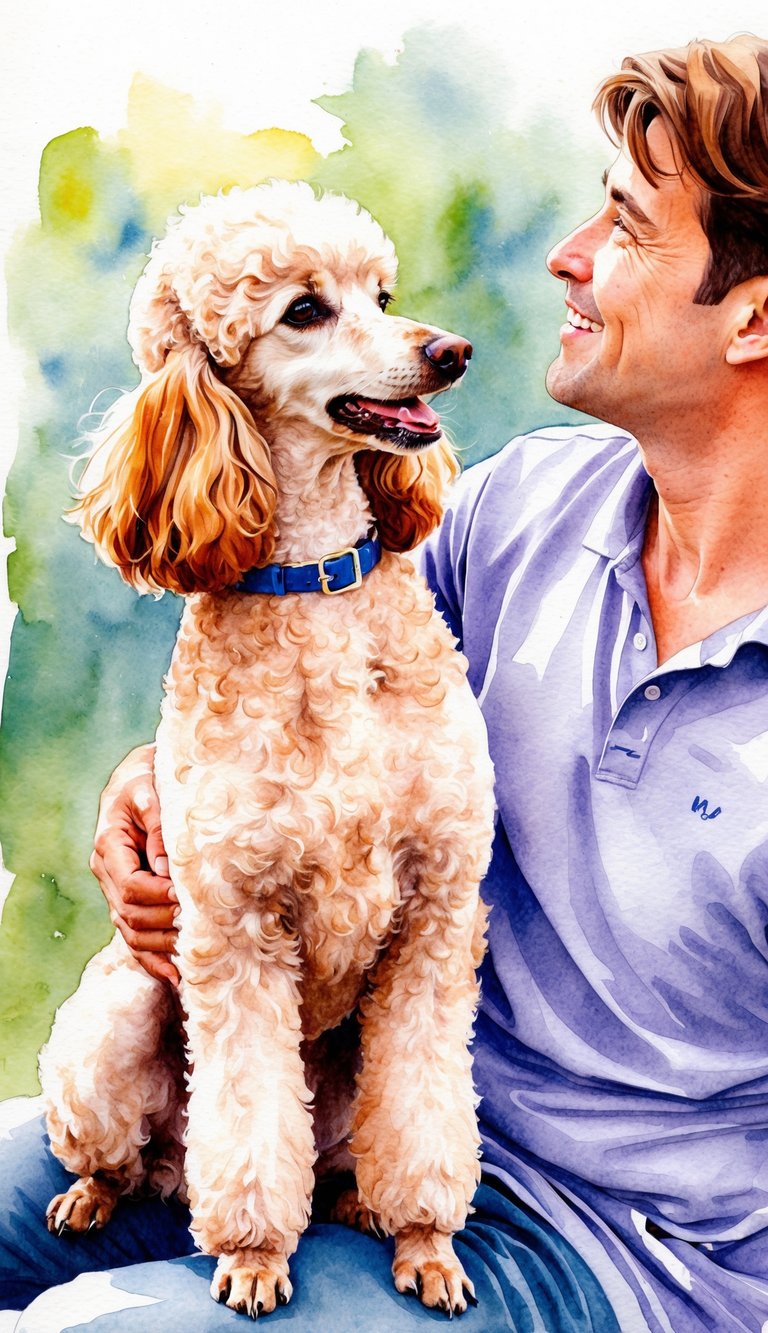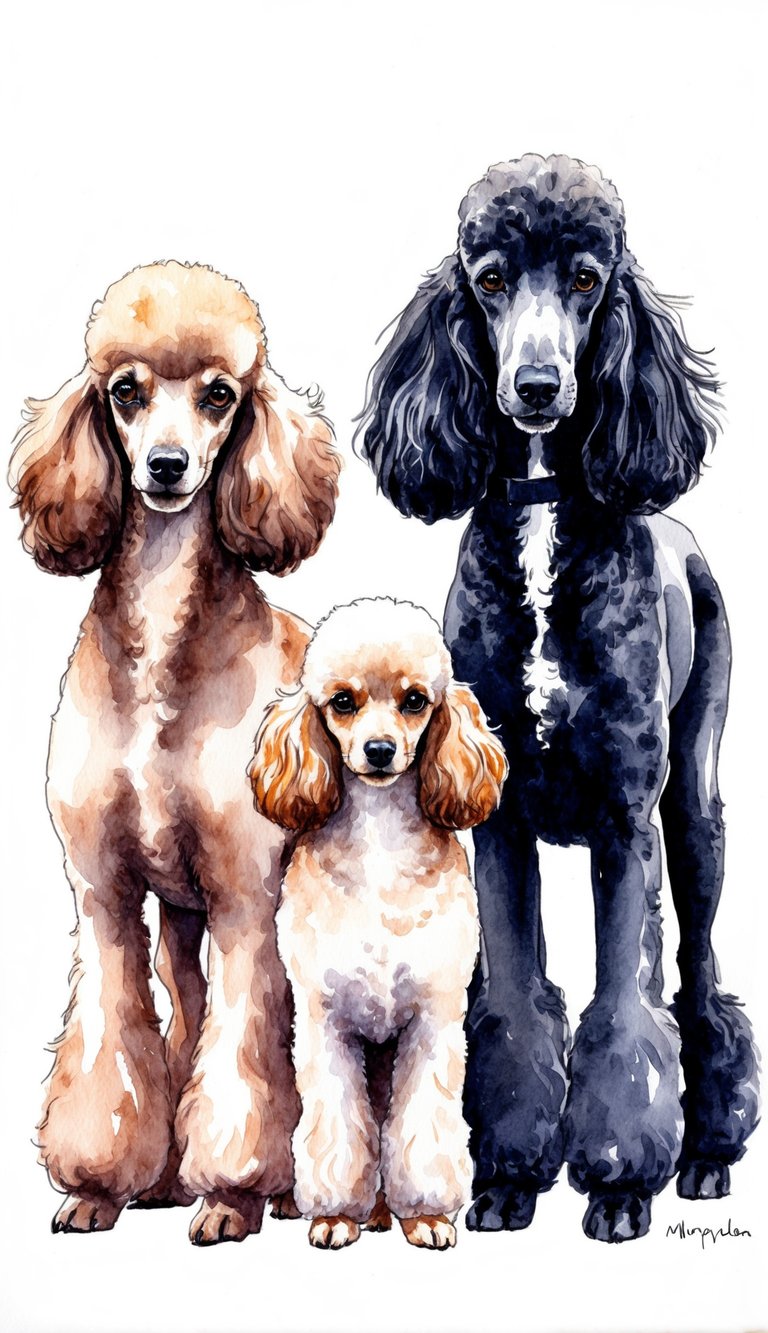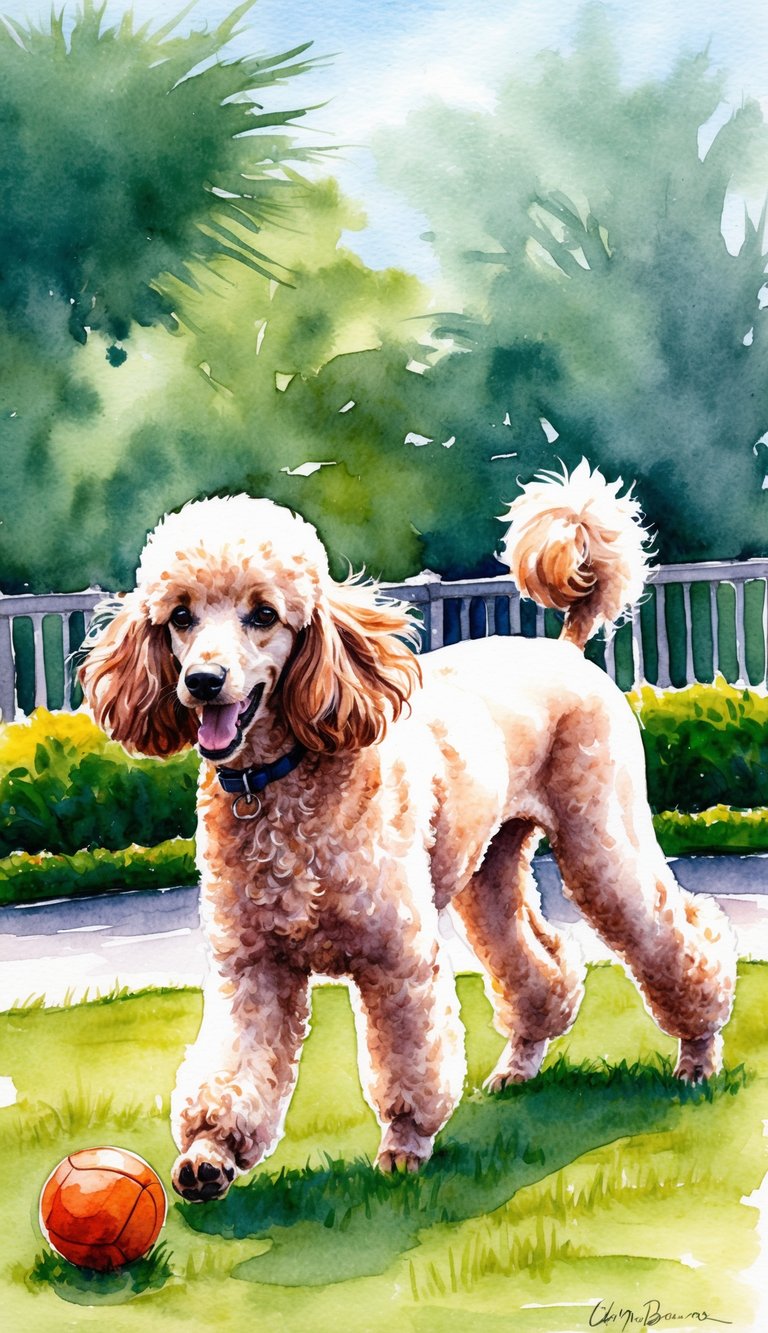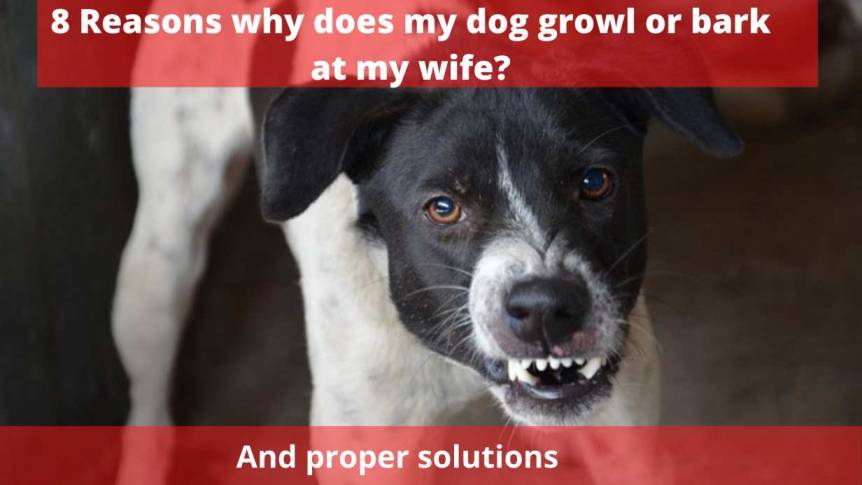Are you thinking about getting a poodle? These smart, friendly dogs come in three sizes – toy, miniature, and standard – making them adaptable to different living situations. Their curly coats and playful personalities have made them popular pets for many families.

Poodles make excellent pets due to their intelligence, friendliness, and eagerness to learn. However, they do require regular grooming and have specific care needs that potential owners should consider. I’ll share the main advantages and drawbacks of poodle ownership to help you decide if this breed is right for your lifestyle.
Intelligent and easy to train
One of the biggest pros of owning a Poodle is their remarkable intelligence. Poodles are widely recognized as one of the smartest dog breeds, which makes living with them a true joy.
Poodles catch on to commands quickly and seem to understand what I’m asking of them. Their eagerness to please means they’re typically responsive to training from an early age.
This intelligence makes them highly adaptable pets. Whether I’m teaching basic obedience or more complex tricks, my Poodle picks things up faster than other dogs I’ve owned.
However, their smarts can occasionally present challenges. Sometimes my Poodle gets bored if not mentally stimulated enough, and that big brain can lead to mischief!
Poodles thrive when given puzzles and tasks that make them think. Training sessions aren’t just about obedience but provide essential mental exercise they crave.
Their ability to learn quickly means I can train them to fit perfectly into my lifestyle. From house training to leash manners, Poodles typically grasp concepts faster than many other breeds.
Loyal and affectionate companions

Poodles are truly some of the most devoted pets I’ve ever encountered. They form deep bonds with their owners and show their love through constant companionship and affection.
When I come home after a long day, my Poodle is always waiting by the door, tail wagging with excitement. This breed thrives on human connection and doesn’t like being left alone for extended periods.
I’ve noticed that my Poodle follows me from room to room, always wanting to be part of whatever I’m doing. They’re not just pets; they become true family members who are invested in your daily life.
While initially cautious around strangers, Poodles quickly warm up to people once properly introduced. Their loyalty makes them excellent family dogs as they tend to love and protect everyone in their household.
I especially love how my Poodle can sense my emotions. When I’m feeling down, my furry friend will snuggle up beside me as if trying to comfort me with their presence.
Their affectionate nature makes them great therapy dogs too. Poodles naturally connect with people and can bring joy to those around them with their loving personalities.
Hypoallergenic coat

One of the biggest benefits of poodles is their hypoallergenic coat. This means they shed very little hair and produce less dander compared to other dog breeds. For someone with allergies like me, this makes poodles an excellent choice.
Poodle owners rarely have hair on their clothes or furniture. This low-shedding quality is why so many people with allergies can safely own a poodle without suffering from sneezing or itchy eyes.
The curly, dense coat of a poodle actually traps the loose hair and dander that would normally spread around your home. This doesn’t mean poodles are completely allergen-free, but they cause fewer problems than most other breeds.
I should mention that this special coat does require regular grooming. The hair grows continuously rather than shedding, which is great for allergies but means you’ll need to schedule haircuts every 4-6 weeks.
Many poodle owners say the grooming commitment is worth it for the benefit of having a dog that doesn’t trigger allergic reactions. This hypoallergenic quality makes poodles popular service dogs too, since they can access more places without causing allergy issues.
Variety of sizes: toy, miniature, and standard

One thing I love about Poodles is that they come in three different sizes. This gives potential owners options based on their living situation and preferences.
The Standard Poodle is the largest, measuring at least 15 inches at the shoulder. They’re great for active families with space for a larger dog.
Miniature Poodles stand 15 inches or under. They’re a nice middle ground – not too big, not too small. I find they have a good energy level for most families.
Toy Poodles are the smallest version. They’re perfect for apartment living and can be easier to manage in small spaces. However, they tend to be more delicate than their larger cousins.
All three sizes share the same smart Poodle personality and beautiful curly coat. I appreciate that no matter which size you choose, you’re getting the same breed characteristics.
The size difference mainly affects how much exercise they need and how much space they take up. Standard Poodles typically need more activity, while Toys can get enough exercise in smaller areas.
Your lifestyle should guide which size is right for you. I recommend considering your living space, activity level, and whether you have small children before choosing.
Fabulous for families with children

If you’re looking for a dog that gets along well with kids, poodles are a fantastic choice. They’re friendly and eager to connect with people, making them great family pets.
Poodles have a wonderful temperament around children. They’re patient and gentle, yet playful enough to keep up with active kids.
Their intelligence makes poodles easy to train, which is helpful when you have children. You can teach them proper behavior around kids, and they learn quickly.
Many poodle owners tell me their dogs are like having another family member in the house. They truly bond with everyone in the family, including the little ones.
I think it’s worth noting that poodles are energetic and might accidentally bump into small children during play. But with proper training, they learn to be careful.
Another plus is that poodles don’t shed much, which is great for families concerned about allergies or cleaning up dog hair constantly.
Low-shedding breed

Poodles are famous for being a low to non-shedding breed. This means they lose very little hair around your home. For people with allergies, this can be a huge plus since they’re often considered hypoallergenic.
I should mention that Poodles have hair instead of fur. Their hair grows continuously like human hair rather than growing to a certain length and falling out like many other dog breeds.
This low-shedding quality makes them cleaner pets in some ways. I don’t find hair all over my furniture, clothes, or food when I have a Poodle around!
The trade-off is that their coat requires more regular maintenance. Since their hair doesn’t naturally shed, it needs to be brushed often to prevent matting and tangling.
Many Poodle owners consider the reduced shedding worth the extra grooming time. It’s especially nice not having to vacuum dog hair every day!
Active and energetic playmates

Poodles bring so much joy to my life with their playful energy. They’re athletic dogs that need regular exercise to stay happy and healthy. I’ve found that my Poodle is always ready for an adventure, whether it’s a long walk or a game of fetch.
I need to take my Poodle for at least one good walk every day. They also love playtime where we can interact together. This high energy level means they’re perfect companions for active people like me.
Their intelligence makes them fun to play with too. My Poodle quickly learns new games and tricks, which keeps things interesting for both of us. I never get bored with such a clever playmate around.
One thing I’ve noticed is that without enough exercise, Poodles can develop bad habits. My friend’s Poodle started barking a lot when left alone without enough activity. I make sure mine gets plenty of movement to prevent this.
For families with kids, Poodles make excellent playmates who can keep up with children’s energy. I love watching my Poodle gently play with the neighborhood kids. Their friendly nature makes them good with children of all ages.
Adaptable to small spaces

One of the great things about poodles is that they can adjust well to smaller living spaces. This is especially true for Miniature and Toy Poodles, which don’t need as much room as larger breeds.
Poodles can be comfortable in apartments or small houses as long as they get enough exercise. My small poodles are happy in my apartment because I make sure to take them for regular walks.
Even Standard Poodles can adapt to smaller spaces if they receive proper exercise and mental stimulation. The search results confirm that Mini Poodles in particular are adaptable to smaller spaces, which makes them great pets for city living.
Despite their adaptability, poodles shouldn’t be left alone for long periods. They’re social dogs that prefer to be around their people, so they’re best for owners who can spend quality time with them.
Remember that even in small spaces, poodles need activities to keep their intelligent minds busy. I provide my poodles with toys and training sessions to prevent boredom in our compact living situation.
Requires regular grooming

Poodles have a unique coat that doesn’t shed much, which is great for people with allergies. But this benefit comes with a trade-off – they need a lot of grooming care.
I’ve found that poodles need to be brushed almost daily to prevent tangles and mats in their curly hair. When I skip a few days, their coat can quickly become a mess that’s hard to fix.
Professional grooming is also necessary every few weeks, which adds to the cost of owning a poodle. My groomer recommends appointments every 4-6 weeks to keep their coat in good shape.
The longer you let a poodle’s hair grow, the more maintenance it requires. I spend about 15-20 minutes each day brushing my poodle to keep its coat healthy.
Unlike breeds with short coats that need minimal care, poodles are definitely high-maintenance in the grooming department. This time commitment is something to seriously consider before bringing a poodle home.
If you’re not willing to brush regularly or pay for professional grooming, a poodle might not be the right choice for you. Their beautiful coats require consistent attention to stay healthy and mat-free.
Can excel in various dog sports

Poodles are amazing athletes! I’ve found that these intelligent dogs thrive when given physical and mental challenges. They’re naturals at many dog sports and activities.
Poodles excel at obedience trials because they learn commands quickly and enjoy showing off their skills. My standard poodle mastered complex routines faster than I expected.
Agility courses are another great option for poodles. They love jumping, weaving through poles, and navigating tunnels with their athletic bodies. Their enthusiasm for these activities is contagious!
I’ve seen poodles do well in dock diving and retrieving sports too. Their history as water retrievers makes them naturally suited for these activities.
Training for dog sports strengthens the bond between you and your poodle. I’ve noticed my relationship with my poodle deepen through our training sessions and competitions.
These versatile dogs can also participate in tracking, rally, and even freestyle dancing. I’m always impressed by how quickly poodles pick up new movements and routines.
The mental stimulation from dog sports helps prevent boredom and destructive behaviors. My poodle is much happier and calmer after a good training session.
Great social skills with other pets

Poodles are known for their friendly nature when it comes to other pets. I’ve seen many poodles who get along wonderfully with cats, rabbits, and even smaller dogs in the same household.
Their intelligence helps them understand boundaries with other animals. They can learn when to play and when to give space to their furry housemates.
My poodle adjusted quickly to our cat, showing patience I didn’t expect. This adaptability makes introducing a poodle to an existing pet family much easier than with some other breeds.
Poodles aren’t typically aggressive toward other animals. This means less worry about fights or tension between your pets.
Early socialization is still important though. I found that introducing my poodle to different animals when young helped build those positive social skills.
Their playful nature makes them good companions for active pets. My friend’s poodle and golden retriever have become inseparable play buddies who tire each other out.
Highly responsive temperament

Poodles have an amazing temperament that makes them super easy to train. I’ve found that they’re really quick to pick up new commands and tricks. They truly want to please their owners and are always ready to learn something new.
Their responsive nature makes training sessions fun and rewarding. My poodle learned basic commands in just a few short sessions. This smart breed seems to understand what I want almost before I finish giving the command.
Poodles are known for being incredibly people-oriented. They form strong bonds with their families and are very tuned in to human emotions and needs. This responsiveness makes them great companions who adapt well to different household situations.
Their friendly and playful personality shines through in how they interact with everyone. I love how my poodle greets family members with excitement but can quickly calm down when needed. This adaptability is one of their best qualities.
The eagerness to connect with people makes poodles wonderful family pets. They’re generally good with children and other pets when properly socialized. Their desire to be part of the family activities makes them feel like true companions rather than just pets.
May need ample physical activity

Poodles are known for being active and energetic dogs that need regular exercise to stay happy and healthy. If you’re thinking about getting a poodle, you should know they require daily physical activity to burn off their energy.
Most adult poodles need about 60 minutes of exercise each day. This is especially true for Standard Poodles who are in their prime years (between 2 and 7 years old).
The amount of exercise needed can vary depending on the poodle size. Standard Poodles generally need more space and exercise than their Miniature and Toy cousins.
When I take my poodle out for daily walks, I notice he’s much calmer at home afterward. Without enough exercise, poodles can become restless and may develop behavior problems.
Exercise isn’t just about physical health for poodles. These intelligent dogs need mental stimulation too. Playing games that challenge their minds can be just as important as physical exercise.
I’ve found that regular activity helps improve my poodle’s blood circulation, muscle tone, and digestion. It’s also good for maintaining strong bones.
Thrives with mental stimulation

Poodles are super smart dogs who need to use their brains. I’ve found that my poodle gets bored easily when there’s nothing to challenge his mind.
Mental stimulation is just as important as physical exercise for a poodle. When my poodle doesn’t get enough brain games, he can become unhappy or even destructive around the house.
I love to give my poodle puzzle toys that make him work for treats. These toys keep him busy and happy for hours while sharpening his problem-solving skills.
Training sessions are another great way to provide mental exercise. My poodle learns new tricks quickly and seems proud when he masters something new.
I’ve noticed that playing hide-and-seek with toys or treats around the house is another fun way to keep my poodle’s mind active. He uses his nose and brain to track down hidden items.
Without enough mental challenges, a poodle might find their own entertainment – which usually isn’t what you want! My friend’s understimulated poodle once figured out how to open the fridge.
Social interaction is a must

Poodles are incredibly social dogs who thrive on human companionship. I’ve noticed that my poodle gets visibly sad when left alone for too long. My poodle often seeks me out for attention and playtime whenever possible.
These intelligent dogs consider themselves part of the family and want to be included in daily activities. My poodle follows me from room to room. She always wants to be where the action is.
If you’re considering a poodle, be prepared for a dog that doesn’t enjoy solitude. They prefer busy households where there’s always someone around to interact with them.
Daily walks and play sessions aren’t just for exercise – they’re essential for your poodle’s mental wellbeing. I make sure to give my poodle plenty of social time each day, which helps prevent boredom and anxiety.
Working long hours or traveling frequently might make poodle ownership challenging. These dogs genuinely need human interaction and can become unhappy or develop behavioral issues if left alone too often.



